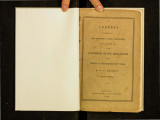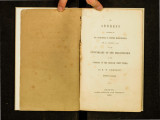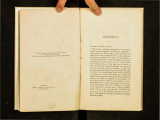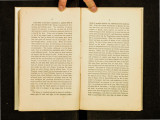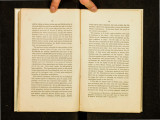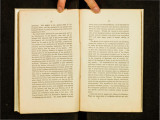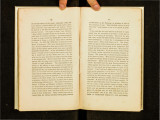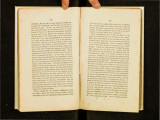| Title |
Address Delivered in the Court-House in Concord, Massachusetts |
| Call Number |
E449 .E54; Record ID 99276940102001 |
| Date |
1844 |
| Description |
Emerson, Ralph Waldo (1803-1882). An Address Delivered in the Court-House in Concord, Massachusetts. Boston: J. Munroe and Company, 1844 First edition E449 E54 |
| Creator |
Emerson, Ralph Waldo, 1803-1882 |
| Publisher |
Digitized by J. Willard Marriott Library, University of Utah |
| Subject |
Slavery -- United States -- Controversial Literature; Slavery -- West Indies |
| Type |
Text |
| Format |
application/pdf |
| Identifier |
An_Address_Delivered_in_the_Court_House.pdf |
| Language |
eng |
| Collection Name |
Rare Books Collection |
| Holding Institution |
Rare Books Division, Special Collections, J. Willard Marriott Library, University of Utah |
| Rights |
 |
| Scanning Technician |
Cedar Gonzlaez |
| Digitization Specifications |
Original scanned with Hasselblad H2D 39 megapixel digital camera and saved as 600 ppi tiffs. Display images created in Adobe Photoshop Lightroom 4 and generated in Adobe Acrobat ProX as multiple page pdf. |
| ARK |
ark:/87278/s6qv5cdg |
| Setname |
uum_rbc |
| ID |
298284 |
| Reference URL |
https://collections.lib.utah.edu/ark:/87278/s6qv5cdg |




